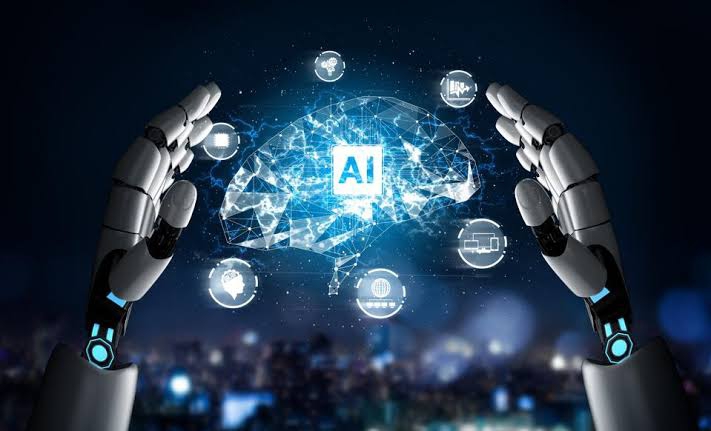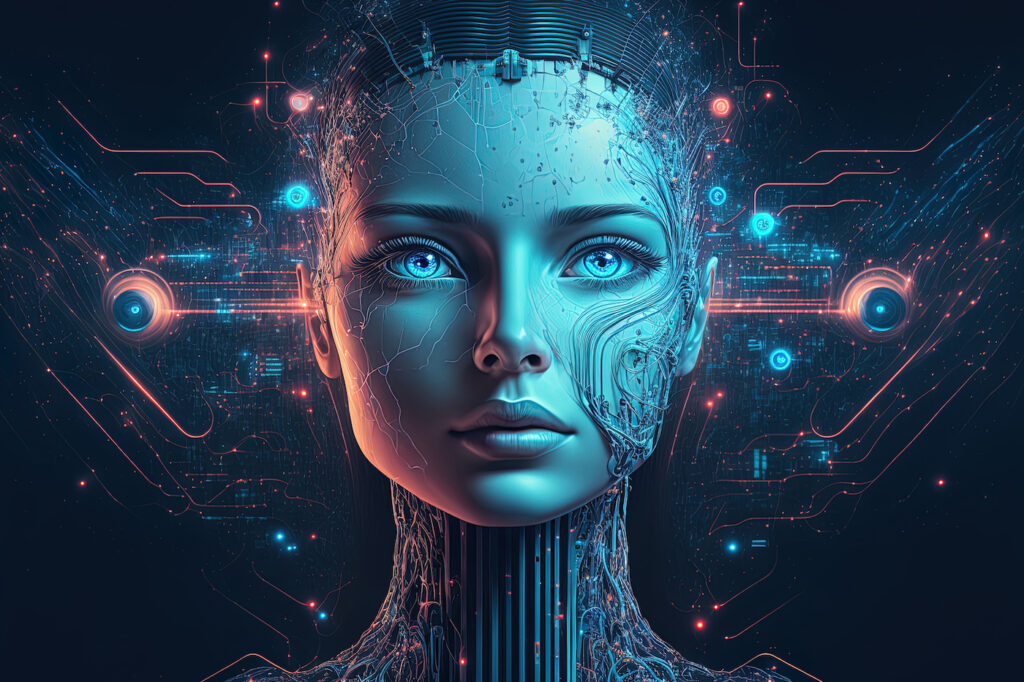AI is the future
In Future Ai Is It Worth It...?


The question of whether AI will be worth it in the future is a complex one.
AI can also help businesses improve their processes and operations, which can lead to increased productivity and profitability. artificial intelligence
Better decision-making: AI can analyze data and make predictions, which can help businesses make better decisions about everything from product development to marketing campaigns.
Improved healthcare: AI can be used to diagnose diseases, develop new treatments, and provide more personalized care to patients.
Environmental conservation: AI can be used to develop more efficient energy sources, reduce pollution, and protect endangered species.
However, there are also some potential risks to AI, such as:
Job displacement: As AI becomes more sophisticated, it is possible that some jobs will be automated, leading to job displacement for some workers.
Data privacy: AI systems collect and process large amounts of data, which raises concerns about data privacy and security.
Loss of control: AI systems can become so sophisticated that they become difficult to control, which raises concerns about the potential for AI to be used for malicious purposes.
Ultimately, whether AI is worth it in the future depends on how we choose to develop and use this technology.
However, if we use AI irresponsibly or for malicious purposes, it could have devastating consequences.
It is important to have a thoughtful discussion about the future of AI and to develop policies and regulations that will ensure that AI is used for good. We need to make sure that AI benefits everyone, not just a select few. We also need to make sure that AI is used in a safe and secure way.
The future of AI is uncertain, but it is clear that this technology has the potential to change the world in many ways. It is up to us to decide how we want to use AI and to ensure that it is used for good.
Artificial Intelligence

The question of whether AI is worth it in the future is a complex one.
AI can also help businesses to improve their processes and operations, which can lead to increased productivity and profitability.
Better decision-making: AI can analyze data and make predictions, which can help businesses to make better decisions about everything from product development to marketing campaigns.
Improved healthcare: AI can be used to diagnose diseases, develop new treatments, and provide more personalized care to patients.
Environmental conservation: AI can be used to develop more efficient energy sources, reduce pollution, and protect endangered species.
However, there are also some potential risks to AI, such as:
Job displacement: As AI becomes more sophisticated, it is possible that some jobs will be automated, leading to job displacement for some workers.
Data privacy: AI systems collect and process large amounts of data, which raises concerns about data privacy and security.
Loss of control: AI systems can become so sophisticated that they become difficult to control, which raises concerns about the potential for AI to be used for malicious purposes.
Ultimately, whether AI is worth it in the future depends on how we choose to develop and use this technology.
However, if we use AI irresponsibly or for malicious purposes, it could have devastating consequences.
It is important to have a thoughtful discussion about the future of AI and to develop policies and regulations that will ensure that AI is used for good. We need to make sure that AI benefits everyone, not just a select few. We also need to make sure that AI is used in a way that is safe and secure. The Feature Of Ai Technology
It is up to us to decide how we want to use AI and to ensure that it is used for good.
The Power and Potential of Artificial Intelligence (AI) in Modern Times
In today’s rapidly evolving digital landscape, the integration of Artificial Intelligence (AI) has become a game-changer for businesses and industries worldwide. At the intersection of innovation and technology, AI is redefining the way we work, communicate, and conduct business. In this comprehensive article, we delve deep into the realm of AI, exploring its profound impact, applications, and how it is reshaping the competitive landscape.
Mid Journey Ai
Understanding Artificial Intelligence
At its core, Artificial Intelligence refers to the simulation of human intelligence in machines that are capable of performing tasks that typically require human cognitive functions. These functions include learning, problem-solving, language understanding, and decision-making. AI systems use a variety of techniques, including machine learning, neural networks, and natural language processing, to process vast amounts of data and generate valuable insights.
AI’s Transformative Impact on Industries
AI’s influence spans across various sectors, leading to transformative changes that optimize operations, enhance customer experiences, and drive innovation. Let’s explore a few key industries that are experiencing a revolution due to AI integration:
1. Healthcare and Medicine
AI has ushered in a new era of personalized medicine, allowing for more accurate diagnoses, predictive analytics, and targeted treatment plans. Machine learning algorithms can analyze medical records, genetics, and even medical imaging to assist healthcare professionals in making informed decisions. Additionally, AI-powered robotic surgery is enhancing precision and minimizing invasiveness.
2. Finance and Banking
In the financial realm, AI algorithms are revolutionizing fraud detection, risk assessment, and investment strategies. Chatbots powered by AI provide efficient customer service, while predictive analytics assist in optimizing trading decisions. The speed and accuracy of AI-driven financial processes are elevating the industry’s capabilities.
3. Manufacturing and Automation
AI-driven automation is optimizing manufacturing processes by enabling predictive maintenance, quality control, and supply chain management. Robots equipped with AI are enhancing production efficiency and safety in factories, resulting in reduced costs and increased output.
4. Retail and E-Commerce
E-commerce platforms leverage AI to analyze customer behavior and preferences, facilitating personalized shopping experiences. Chatbots provide real-time assistance, while AI-powered recommendation systems suggest products tailored to individual tastes. This enhances customer engagement and boosts sales.

